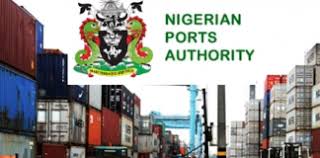Paragraph 1: Overview of Nigerian Port Improvements & Stakeholder Acclaim
Nigerian ports have witnessed notable advancements in recent years, driven by modernization projects, strategic policy reforms, and targeted investments in human capital. These improvements have garnered widespread praise from key stakeholders across the maritime sector, including shipping lines, terminal operators, and cargo handlers. The Nigerian Ports Authority (NPA), under the leadership of Dr. Abubakar Dantsoho and supported by the Minister of Marine and Blue Economy, Adegboyega Oyetola, has spearhead initiatives aimed at boosting efficiency, alleviating congestion, and enhancing the overall experience for port users. Stakeholders particularly applaud the NPA’s commitment to fostering a conducive business environment and stimulating economic growth through streamlined processes, gridlock elimination, and infrastructure upgrades.
Paragraph 2: Dantsoho’s Vision and Port Rehabilitation Efforts
Upon assuming leadership of the NPA in 2024, Dr. Dantsoho prioritized performance improvement measures to enhance the competitiveness of Nigeria’s primary trade facilitation platform and contribute significantly to the national economy. Central to this strategy was a focus on port rehabilitation. Work commenced on revitalizing the aging Tincan Island Port complex and undertaking comprehensive rehabilitation of Apapa, Rivers, Onne, Warri, and Calabar Port complexes. These efforts sought to ensure structural integrity and modernize these facilities to meet the evolving demands of the international maritime landscape. The aim was to transform these ports into modern, efficient hubs capable of handling increased cargo volumes and facilitating smoother trade operations.
Paragraph 3: Port Capacity Expansion and Technological Advancements
Beyond rehabilitation, the NPA pursued port capacity expansion through operationalizing new ports and promoting green port development. A significant milestone was the finalized agreement for the $1 billion development of Snake Island Port, a project set to significantly boost cargo handling capacity. Other deep seaport projects in Badagry, Ondo, and Burutu are also at various stages of development under the NPA’s technical guidance. Simultaneously, the NPA aggressively implemented initiatives like the Port Community System and the National Single Window to enhance port competitiveness, solidifying Nigeria’s position as a key player in the African maritime logistics arena. These initiatives aimed to digitize and streamline port processes, reduce paperwork, and improve transparency for all stakeholders.
Paragraph 4: Addressing Gridlock and Achieving Trade Surplus
A major achievement under Dantsoho’s leadership was the enhancement of the electronic call-up system for truck traffic management. This initiative, building upon previous efforts, incorporated satellite truck parks and time belts, significantly easing traffic gridlock that had long plagued port access roads. This improvement facilitated smoother cargo movement and contributed to a more efficient port ecosystem. Furthermore, Dantsoho’s focus on port efficiency played a role in Nigeria achieving a substantial trade surplus of N5.81tn ($3.7bn) in the third quarter of 2024, with exports largely facilitated through NPA platforms. This achievement is attributed in part to the successful implementation of President Tinubu’s strategy to trade crude and petroleum products in Naira, bolstering national energy security and creating jobs.
Paragraph 5: Investment Drives and Shipping Line Partnerships
The NPA actively pursued public-private partnerships to generate revenue from various port-related activities, including independent power production, bunkering stations, logistics land development, freshwater provision, and ship repairs. An investment drive focused on the Eastern Ports resulted in numerous expressions of interest for projects in Rivers, Calabar, and Burutu Ports. A significant development was the partnership between West Africa Container Terminal (WACT)-APM Terminals Nigeria and Hapag-Lloyd, a leading global liner shipping company. This partnership established a weekly shipping service directly connecting Eastern Nigeria to global trade routes, demonstrating growing confidence in the region’s potential. These developments highlight the NPA’s success in attracting foreign investment and strengthening international trade connections.
Paragraph 6: Remaining Challenges and Stakeholder Commendations
Despite significant progress, challenges persist in fully optimizing the Nigerian port sector. The issue of empty container congestion remains a concern, with thousands of containers littering ports and posing environmental and logistical challenges. Shipping lines’ practices of leaving behind empty containers due to the cost of repatriation contribute to this issue. Furthermore, high port charges and exchange rate fluctuations continue to burden shippers, increasing the cost of doing business and impacting cargo clearance. Despite these challenges, stakeholders, including Dangote Industries Limited and trucking associations, have commended Dantsoho’s leadership and the NPA’s initiatives. They express confidence in the positive trajectory of the Marine and Blue Economy sector, citing improved traffic flow, enhanced port efficiency, and the potential for further growth and development. The ongoing efforts to address the remaining challenges signal a commitment to continuous improvement and the pursuit of a world-class port system in Nigeria.


